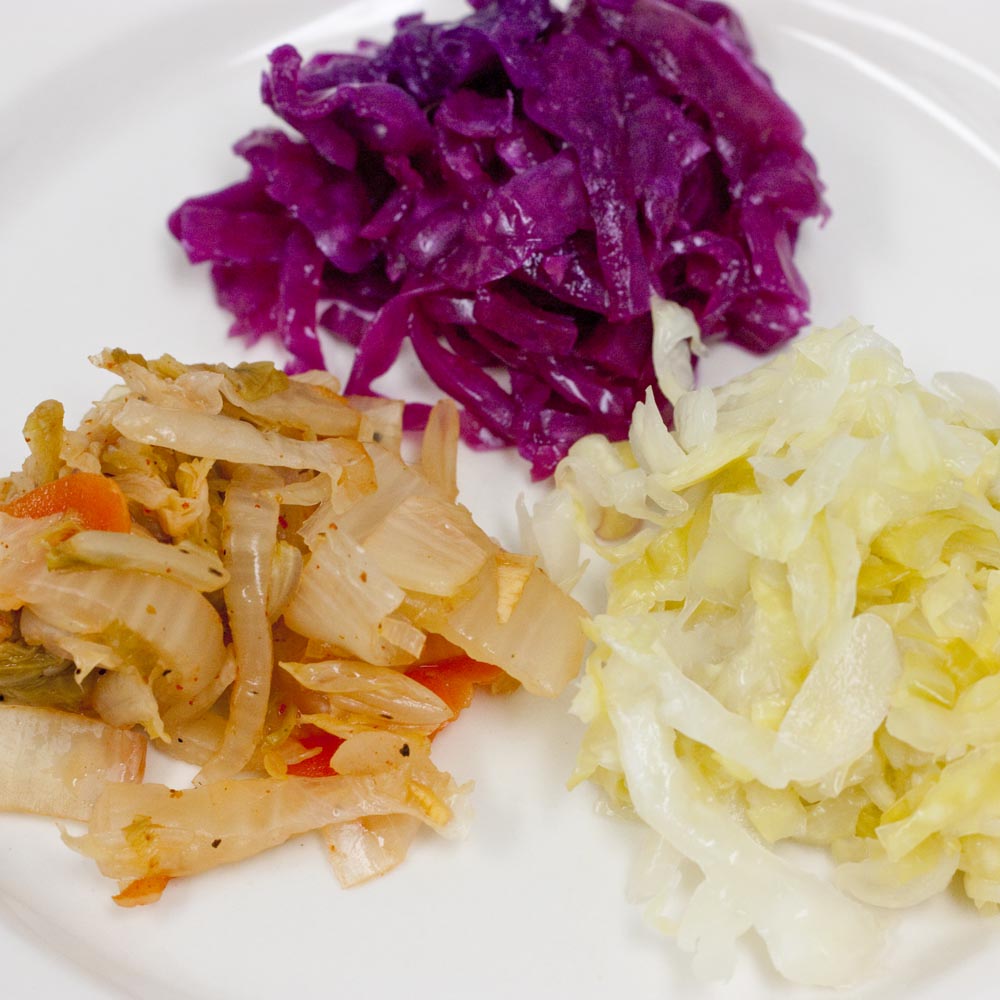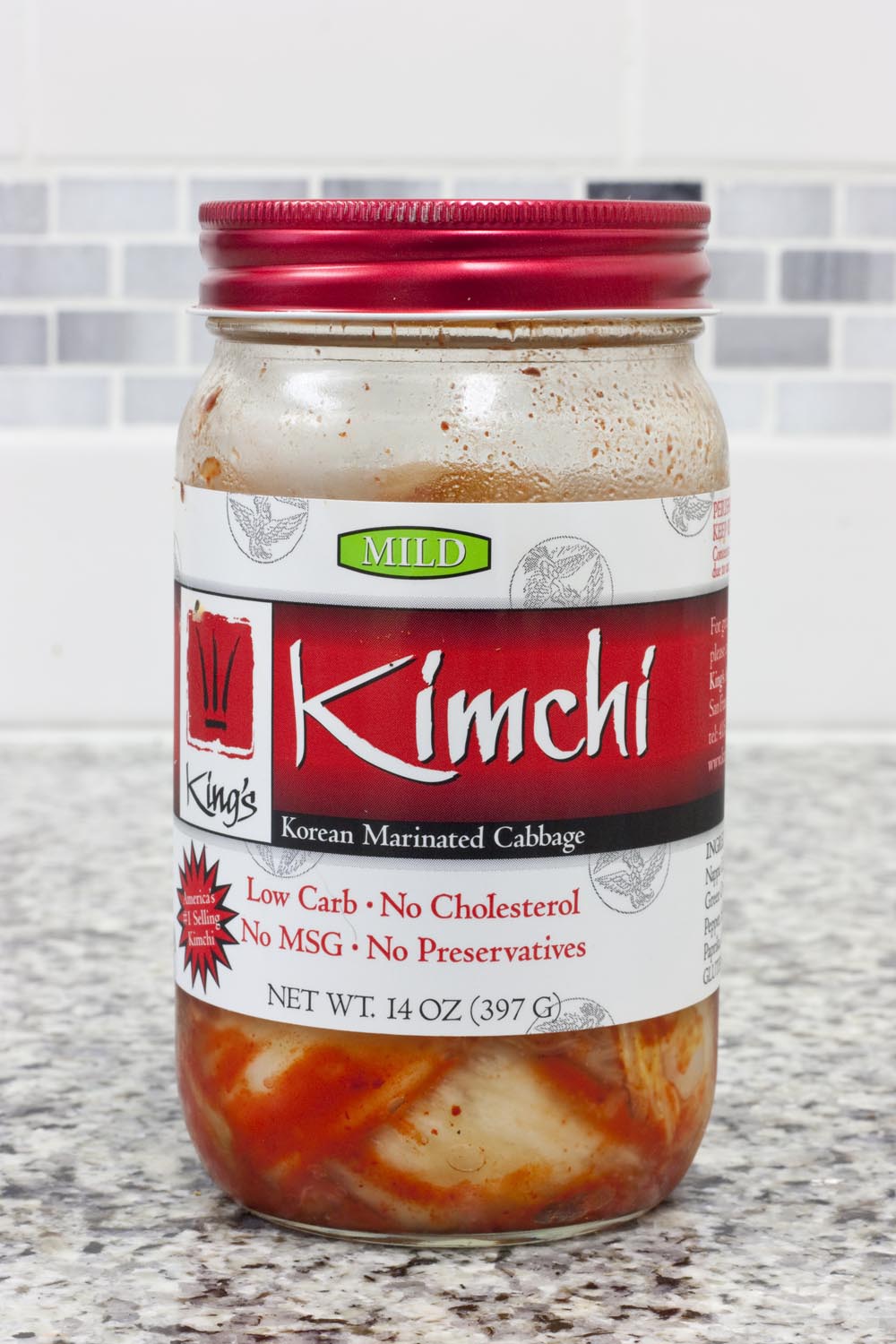Various foods have been fermented for thousands of years. People probably started fermenting in order to increase the edible life-span of the foods. Sauerkraut will last many months longer than fresh cabbage and sourdough bread lasts days longer than bread leavened with only commercial yeast. Cucumbers fermented to make pickles will last through a winter and spring while fresh cucumbers will be edible for only days without refrigeration.
Fermented foods bring a lot more to a healthy whole food diet than just a longer shelf life. Lactobacillus acidophilus is the primary “good” bacteria responsible for most fermentation of foods. As this bacteria digests the starches and sugars present in the food, it produces omega-3 fatty acids and B vitamins, including vitamin B12. The fermentation process also weakens cell walls, making other nutrients within the food more easily available to the body.

Sourdough bread is considered a fermented food because of its traditionally long rise time and use of “wild” bacteria and yeasts
Living fermented foods maximize health in other ways. Lactic acid is another fermentation byproduct that prevents the growth of “bad” bacteria, yeasts and fungi that cause spoilage and decay. Fermented foods are partially “pre-digested” by the bacteria, making the food easier for us to digest. Short chain fatty acids are also produced which directly feed the cells lining the intestines, thereby increasing intestinal health. The bacteria responsible for fermentation help existing “good” gut bacteria and prevent “bad” bacteria and viruses from getting established. Registered dieticians have concluded that there are inherent probiotic health benefits associated with regularly eating living fermented foods.
The key word in the last paragraph is “living”. There are a few brands of “raw” sauerkraut and kimchi available but they can be difficult to find and are relatively expensive. The problem with most commercial fermented foods is that they have been pasteurized to kill all of the bacteria. We still get the benefit of the additional nutrients produced by those bacteria but none of the probiotic benefits the live bacteria provide to us. To get the maximum health benefits, check labels very carefully to find fermented foods with “live cultures” that have not been pasteurized.
By far the best and cheapest way to take advantage of fermented foods in a healthy whole food diet is to make them yourself at home. Nature has made this easy to do, as most of the vegetables that are commonly fermented have Lactobacillus bacteria living on or in them when they are picked from the farm or garden. All we need to do to start the fermentation process is add some sea salt and sometimes a little additional water. It is very important to buy produce that has not been irradiated to kill bacteria and prolong shelf life. As irradiated produce does not need to be labelled, the only sure way to get produce with healthy bacteria present is to buy directly from the grower or to buy organic.
Recipes for my favorite fermented foods to make at home will follow in upcoming posts.
Below is a list of links to more in-depth information about fermented foods:
http://www.todaysdietitian.com/newarchives/070112p32.shtml
http://www.motherearthnews.com/natural-health/health-benefits-of-fermented-foods-ze0z1301zgar.aspx
http://www.nutritionaloutlook.com/article/fermentation-beyond-probiotic-benefits-7-18071
http://institutefornaturalhealing.com/2009/01/fermented-foods-and-gut-health/
http://ourworld.unu.edu/en/benefits-of-traditional-fermented-foods
http://articles.mercola.com/sites/articles/archive/2004/01/03/fermented-foods-part-two.aspx



Pingback: What Is A Healthy Whole Food Diet? | Think, Eat, Be Healthy